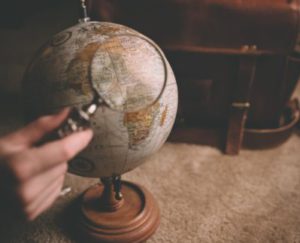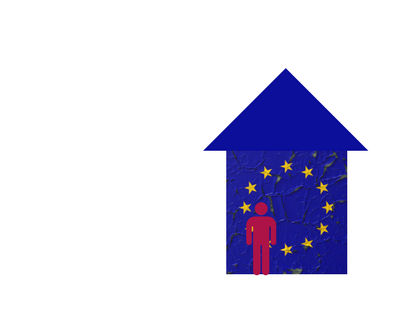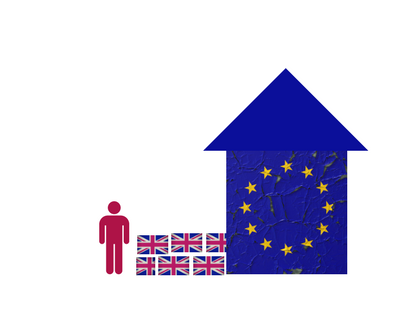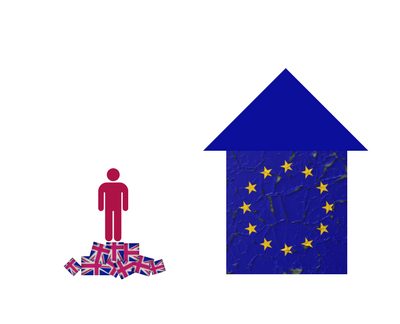
WTO membership and the European Union
It is commonly (and loosely) said either that at the point of withdrawal from the European Union the United Kingdom will need to join the WTO as an independent member; or that the UK will resume its original WTO seat as an independent member. Neither proposition is strictly true.
All 164 current WTO member countries or customs territories are members in their own individual right, and are assessed for their financial contributions to the WTO pro rata to their national shares of world trade (subject to a basic flat rate contribution in the case of very small members). In 1947 the UK was one of the 23 original signatories to the Protocol which brought into provisional application the General Agreement on Tariffs and Trade (GATT), the predecessor and still the basic text of the WTO. It retained its membership unbroken through the lifetime of the GATT, and into the WTO which subsumed the GATT as from 1 January 1995.
Thus UK membership of the WTO does not depend on membership of the European Union. Exactly the same is true of the other 27 current EU member states, all of which individually are WTO members. Indeed the former Communist states Hungary, Poland and the then Czechoslovakia were already GATT members before they began negotiating to join the EU in the 1990s. The three Baltic states (Estonia, Latvia and Lithuania), which had been part of the Soviet Union, were required as part of their preparation for EU accession to secure WTO membership first, and to adopt reforms in conformity with WTO standards and procedures. In summary, for EU members their WTO membership does not depend on EU membership; while adherence to WTO standards and procedures is essential to EU membership status.
Within the EU customs union all the member states are bound by the common commercial policy. The Commission conducts international trade negotiations on behalf of the EU as a whole under mandates from the Council of Ministers, and trade agreements are agreed and signed on behalf of the Council. Because of this situation in EU internal law, it is the convention that in the WTO the Commission acts as spokesman for all the states on all matters except for details of finance, organisation and staffing.
After withdrawal from the EU the UK will remain bound by the requirements and accumulated jurisprudence of the WTO. Standing alone in the Organisation will however mean important differences in Britain’s practical and operational position.
Tariffs on goods and market access for services
Currently, like all the member states, the UK is bound by and applies the EU’s Schedules of tariffs on goods imports as registered with the WTO. These Schedules are drawn up in conformity with the World Customs Organisation’s Harmonised System of Tariff Nomenclature (HS). The HS comprises more than 5,000 headings spread over 99 chapters and covering every description of goods known in international trade, with scope for more to be added as production and markets evolve. According to WTO practice virtually all of the tariff rates posted by the EU are “bound”, meaning that no such rate can be increased above the notified level unless negotiations for compensating reductions in other protection take place with other WTO members adversely affected by the change who demand them.
The UK similarly is party to the Schedules of market access commitments for services suppliers posted by the EU under the WTO General Agreement on Trade in Services (GATS). Market access commitments notified under the GATS are initially voluntary, meaning that they are made at the discretion of the notifying country or organisation. However once they have been notified they are then bound and, as in the case of tariffs, may not be made more restrictive without the offer of negotiations for compensatory market opening to WTO members adversely affected by the change.
UK options for WTO commitments
The UK Government states its firm intention, on leaving the EU, of withdrawing from the EU customs union (covering tariffs on goods) and Single Market (which is the framework for the wider issues of access to services markets, professional standards, prudential regulation etc.). This means that from Brexit day onwards the UK will no longer be bound by the EU’s WTO Schedules. According to WTO rules it will be required to post immediately new national Schedules of tariffs and of market access commitments under GATS. There are four bases on which this could be done:
 Proposals for new Schedules could be worked out from scratch. In this case the UK would need to review, consult on and propose tariff rates (including, of course, zero rates in many instances) for each of the 5,000+ headings in the HS. Taking into account the lengthy process of consultation with interested parties and the need for detailed analysis of possible economic consequences of individual tariff proposals, this would be a herculean task taking years. And the rates proposed would then be potentially subject to challenge in the WTO by, and possible demands for negotiation with, any other member. In cases where proposed new tariffs on specific products were higher than the UK currently applies under the EU Schedules, there could be extensive demands for negotiation on compensating reductions in other tariffs. Mutatis mutandis, very similar issues would arise in the case of negotiation or renegotiation under GATS of UK commitments to market access for foreign services suppliers. The approach of constructing entirely new UK Schedules of tariffs and GATS commitments would be quite impracticable in the face of the intended timetable for Brexit, and of the demands of WTO procedures and the rights of other WTO partners.
Proposals for new Schedules could be worked out from scratch. In this case the UK would need to review, consult on and propose tariff rates (including, of course, zero rates in many instances) for each of the 5,000+ headings in the HS. Taking into account the lengthy process of consultation with interested parties and the need for detailed analysis of possible economic consequences of individual tariff proposals, this would be a herculean task taking years. And the rates proposed would then be potentially subject to challenge in the WTO by, and possible demands for negotiation with, any other member. In cases where proposed new tariffs on specific products were higher than the UK currently applies under the EU Schedules, there could be extensive demands for negotiation on compensating reductions in other tariffs. Mutatis mutandis, very similar issues would arise in the case of negotiation or renegotiation under GATS of UK commitments to market access for foreign services suppliers. The approach of constructing entirely new UK Schedules of tariffs and GATS commitments would be quite impracticable in the face of the intended timetable for Brexit, and of the demands of WTO procedures and the rights of other WTO partners. To overcome, or at least minimise, these problems UK Ministers announced in December 2016 that in submitting new tariff and GATS Schedules to the WTO, the UK would keep as close as possible to the tariff rates and services access commitments which it currently applies as an EU member state. The aim would be to avoid as far as possible demands by other WTO members for negotiations for compensatory liberalisation; though if the UK Government gave in to sectoral demands for more protection following Brexit, demands for such compensation could well still arise.
To overcome, or at least minimise, these problems UK Ministers announced in December 2016 that in submitting new tariff and GATS Schedules to the WTO, the UK would keep as close as possible to the tariff rates and services access commitments which it currently applies as an EU member state. The aim would be to avoid as far as possible demands by other WTO members for negotiations for compensatory liberalisation; though if the UK Government gave in to sectoral demands for more protection following Brexit, demands for such compensation could well still arise. If there were significant pressures from UK-based firms seeking extra protection following Brexit, an option lying somewhere between (1) and (2) could be considered. This would also be closely scrutinised and possibly challenged by other WTO members. Any relevant hikes in individual tariff rates above the levels of protection which the UK currently applies under the EU’s tariff Schedule, or reductions in guaranteed access for foreign services suppliers, would increase the chances of demands from other WTO members to negotiate compensating measures of liberalisation.
If there were significant pressures from UK-based firms seeking extra protection following Brexit, an option lying somewhere between (1) and (2) could be considered. This would also be closely scrutinised and possibly challenged by other WTO members. Any relevant hikes in individual tariff rates above the levels of protection which the UK currently applies under the EU’s tariff Schedule, or reductions in guaranteed access for foreign services suppliers, would increase the chances of demands from other WTO members to negotiate compensating measures of liberalisation. As a radical alternative, a group of prominent liberal economists contends that the UK should take the opportunity, on Brexit, of removing all import tariffs and other market restrictions. They argue that this would allow the market to work freely and maximise competition, and with it consumer welfare. This is a recognised argument in economic theory; but in practice removing all tariffs, and presumably other forms of trade barriers too, to let the market rip would be politically impracticable for any government engaged in important international negotiations, which has to balance the interests of hundreds of production sectors, consumers, social policy priorities and international relations. Apart from all that, it would deprive the UK of any form of national leverage in future international trade negotiations because there would be no remaining concessions to offer.
As a radical alternative, a group of prominent liberal economists contends that the UK should take the opportunity, on Brexit, of removing all import tariffs and other market restrictions. They argue that this would allow the market to work freely and maximise competition, and with it consumer welfare. This is a recognised argument in economic theory; but in practice removing all tariffs, and presumably other forms of trade barriers too, to let the market rip would be politically impracticable for any government engaged in important international negotiations, which has to balance the interests of hundreds of production sectors, consumers, social policy priorities and international relations. Apart from all that, it would deprive the UK of any form of national leverage in future international trade negotiations because there would be no remaining concessions to offer.
Operating in Geneva
The WTO Secretariat is highly efficient in providing documentation to members including papers for meetings, statistics and special reports. The UK will continue to receive all such documentation as it does now. EU member states coordinate a common position on upcoming WTO issues on the basis of the data and information made available to them and then, under the terms of the Treaties, the Commission negotiates on their behalf, reporting back in coordination meetings as necessary. On Brexit the UK will drop out of that procedure, and will have rely on its own capacity in order to follow the progress of negotiations which are nationally significant for it.
This means that it will be immediately necessary to increase the resources of the UK Mission to the WTO in Geneva (UKMis) in order to provide full independent coverage of relevant WTO meetings. This is not only a matter of physical attendance at meetings by UKMis staff. There will be a greatly increased need for day-by-day consultation with relevant Departments in London on ongoing WTO issues, probably requiring an expanded WTO coordination unit in London, and probably also for more London-based staff to attend specialist meetings in Geneva.
Lobbying and alliances
With the UK acting on its own in the WTO, the issue of forming alliances to influence policy outcomes in a desirable direction will be even more important than it already is. The WTO is a melting-pot in which the 164 member countries constantly lobby each other on issues of current concern. The UK fully intends to continue to pursue trade liberalisation and open markets. UKMis officials already spend much time lobbying partner countries, both within and outside the EU, on these issues in order to build alliances with similarly-inclined governments. After Brexit they are going to have to put a lot more effort into that, particularly now that the US Administration’s attachment to the open trading system seems to be so much in doubt. Britain will probably continue to follow similar basic policies to those of the EU and most Western-orientated countries, and will still be able to forge relevant alliances with partners worldwide including the EU; but it will no longer have the full weight of the EU behind it when it speaks in the Council chamber, committee rooms, corridors or restaurants.
Personality matters
Despite the large number of WTO member countries and the wide range of other international institutions and issues which also preoccupy diplomats in Geneva, the WTO is a closely-knit organisation in which national representatives are constantly in personal contact, both in and out of meetings. Personal contact matters, as above all does personal ability. A highly able representative of a small country can exert an influence on WTO debates and affairs quite out of proportion to the economic weight of his or her land, purely on the basis of personal competence and the respect it earns. A clumsy, ill-briefed or arrogant representative of a large country can have the opposite effect.
A further important WTO characteristic is civility. This is an essentially technical organisation in which, as noted, people know each other well, and good manners are the rule. Of course, issue by issue there are deep policy differences between member governments and groupings of members. An important aspect of the WTO’s work is the analysis and formal adjudication of disputes between members, which are often on matters of very serious economic and political importance. However intense and controversial the arguments on such matters may be, raised voices and angry accusations, whether in the meeting rooms or in the corridors, are nevertheless reassuringly rare.
Upsides and downsides
In principle, the UK is in a good position to move to its new operational status in the WTO following Brexit. It has an unbroken membership of the organisation starting from the initial signature of the GATT in 1947. It has consistently pursued the fundamental GATT/WTO objectives of trade liberalisation and market opening. Despite Brexit, it will continue to share the pro-trade policies of developed economies and an increasing number of developing countries. It has a base of competent and experienced trade diplomats, though this needs to be significantly expanded in order to cope with the wide range of things in the WTO which the UK will now have to do on its own account instead of jointly through the resources of the EU.
The downsides to this apparently positive position are that, as analysed above and depending upon its own policy decisions, the UK could find itself faced with protracted disagreements and negotiations in the WTO over its new national tariff and GATS Schedules. With the UK no longer able to draw on the resources of the EU common commercial policy and the Commission, much more effort will be required in order to keep up with, and contribute constructively to, the large number of WTO issues ongoing at any time. And quite simply, the daily bread of WTO negotiations, of lobbying other members and building alliances in support of the UK national position, is going to be more difficult and time-consuming once the UK has to do it alone instead of as one of a mutually supportive group of 28 countries.